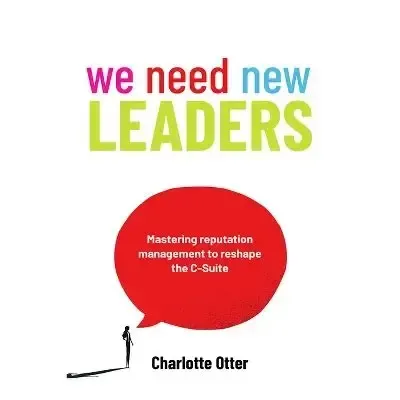Leadership Today: A Living Practice of Integrity, Innovation, and Impact

A personal reflection on leadership as a living practice shaped by integrity, empathy and the everyday choices that build trust, connection and impact.
Image: Supplied.
When I reflect on leadership today, I realise it has never been more complex or more essential to get right.
Drawing on Charlotte Otter’s insights from her book, We Need New Leaders, , I have come to understand that reputation is not a curated brand. It is how others experience and interpret my actions and words, and whether there is real alignment between my values and my behaviour. As Otter writes, “Reputation differs from personal brand – it’s about perception and language.” This distinction shapes how I show up not only at work but as the leader of my own life, family and community.
The Power of Integrity in Leadership
What inspires me most are the stories of leaders who model integrity in action. Emma Sinclair’s journey stands out. She is a groundbreaking entrepreneur for whom innovation and risk-taking are lived values. Seeing her build spaces where diversity is not just welcomed but expected reminds me that creating equity means being open, often to new and challenging ideas. What becomes possible when our values are not just spoken but consistently lived?
Building Relationships for Impact
I also think of Alayne Oriol-Coverill in Zimbabwe, whose conservation work proves that partnership makes the impossible possible. Her story reminds me that any mission worth pursuing, whether in business, conservation or community service, depends on building relationships and fostering networks. How can we connect with others and pool diverse strengths to realise bold visions?
Embracing Empathy and Fairness
Then there is Angie, whose experience in the tech world resonates with so many. She faced real obstacles but demonstrated the power of empathy and fairness. Her story pushes me to recognise the barriers others face and to advocate for cultures where inclusion, understanding and flexibility are non-negotiable. Are we doing enough to support those around us?
Learning from Cautionary Tales
Cautionary tales carry profound lessons. The Kyte Baby scandal, where a company failed to support an employee in need of compassion, is a stark reminder of how quickly reputation can unravel. That warning stays with me. When a leader’s words and organisational values do not align with their actions, trust breaks down. I am committed to ensuring that gap never opens in my own life or leadership. How do we make sure our values are not just stated but lived — especially when the pressure is on?
The Importance of Vulnerability
Above all, I look to leaders like Liz Gebhard, who model vulnerability and authenticity. One idea that stays with me is the call for vulnerability and authenticity in leadership. I am still reflecting on what that means in practice, but I sense its power. When leaders are willing to grow, to listen and to learn out loud, they create space for trust and transformation. I am beginning to explore how openness might deepen relationships and strengthen the way I lead across all areas of my life. What might shift in our relationships, teams or communities if we led with more openness and less armour?
Practical Steps for Everyday Leaders
As we navigate our leadership journeys, here are some practical steps to consider:
- Know Your Values Spend time reflecting on what truly matters. Your values are the anchor for every decision, personally and professionally.
- Seek Feedback Ask colleagues, family or community members how your actions and communication come across. Especially when supporting inclusion, tune in to how your intent is received.
- Align Actions and Words Make it a daily practice to ensure your actions reflect your stated values. This is how trust is built and how spin is avoided.
- Embrace Vulnerability Being open about your challenges fosters trust. When you show authenticity, others feel safe to do the same.
- Champion Others Lift up people from diverse backgrounds or those whose voices are less often heard. Your advocacy helps redefine what leadership looks like.
- Adapt and Keep Learning Leadership is evolving. Stay curious and keep learning from others across industries, generations and perspectives.
- Define Your Mission You are the CEO of your life. Have a clear vision for your family, community or any group you lead and communicate it with conviction.
- Build Networks Like Alayne’s work in conservation, leadership flourishes through strong relationships. Connect, collaborate, ask for help and offer it in return.
Stepping Into Leadership with Purpose
Every day offers a chance to explore what leadership can become. Whether in a team, a community or a family, the work is never finished. It evolves through character, competence and connection, shaped by how we respond, how we relate and how we grow.
Some questions stay with me. What does it mean to lead with integrity when no one is watching. How do innovation and empathy show up in the choices we make. What shifts when we bring more openness into our relationships.
Leadership is not a fixed role. It is a living practice. One that continues to unfold.
Related Topics: